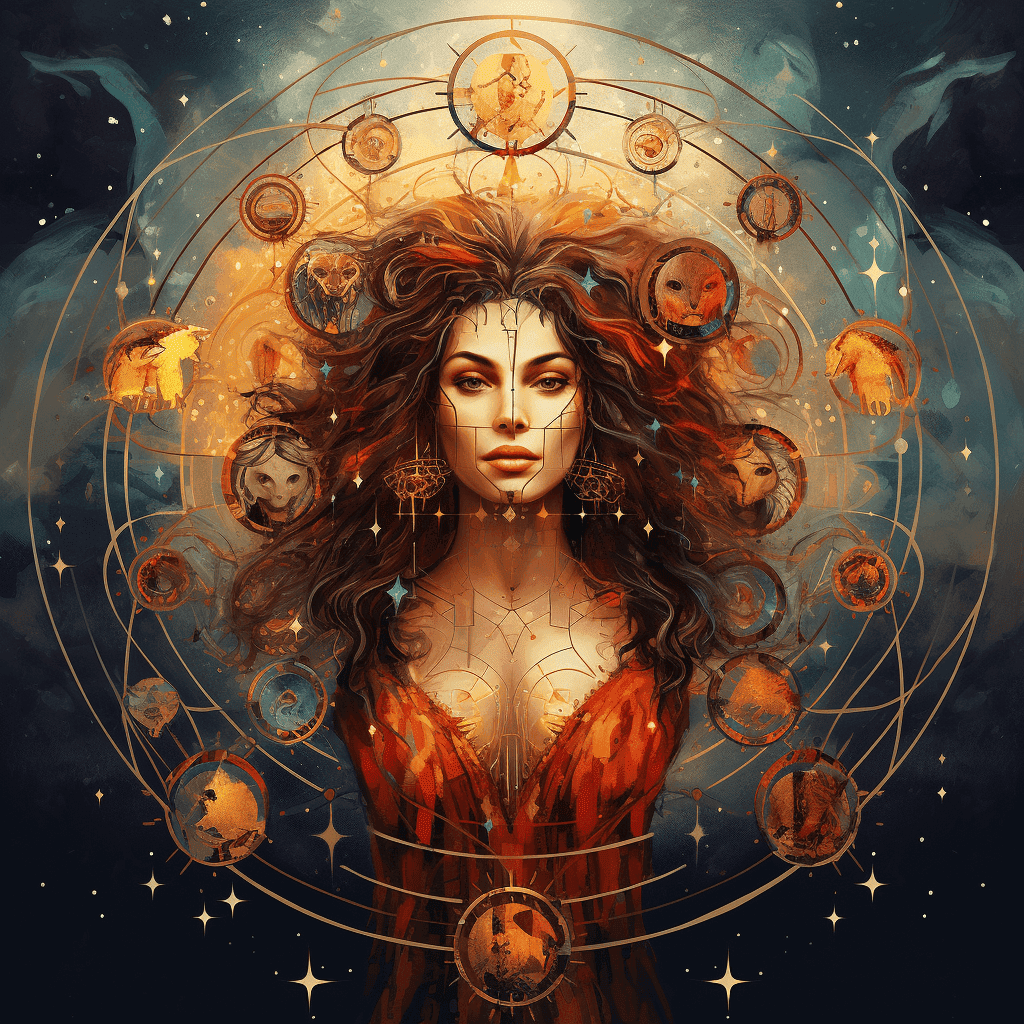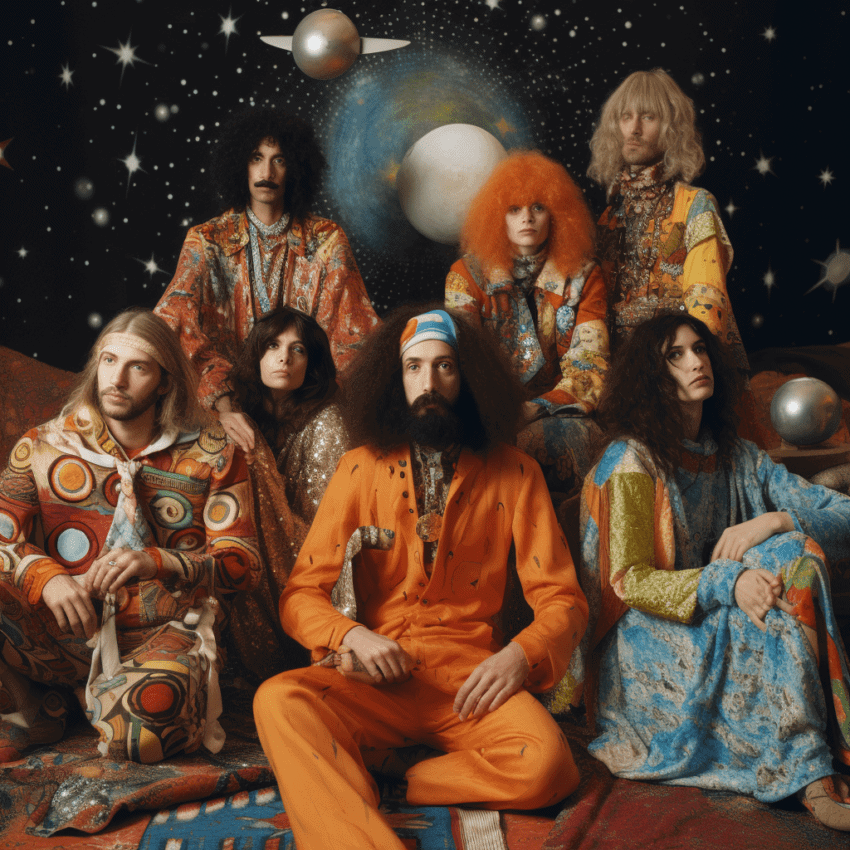Have you ever wondered how astrology can provide insights into your personality traits? Many people believe that the alignment of the stars and planets at the time of their birth can have a profound impact on their character and behavior. In this article, we will explore the fascinating connection between astrology and personality traits, and how understanding this connection can help you gain a deeper understanding of yourself and those around you.
How are Personality Traits Determined in Astrology?
In astrology, personality traits are determined by the positions of the planets and the zodiac signs at the time of a person’s birth. Each planet and zodiac sign is associated with certain characteristics and qualities, and their alignment in a person’s birth chart can provide insights into their personality. For example, someone with a strong influence of the fire sign Aries may be bold, energetic, and assertive, while someone with a strong influence of the earth sign Taurus may be practical, reliable, and grounded. By analyzing the placement of these celestial bodies, astrologers can uncover patterns and tendencies that contribute to a person’s unique personality traits.
Astrologers use a person’s birth chart, which is a map of the positions of the planets and zodiac signs at the time of their birth, to determine their personality traits. Each planet and zodiac sign is associated with specific characteristics and qualities, and their alignment in the birth chart can provide insights into a person’s personality. For example, the placement of the sun in the birth chart represents a person’s core identity and ego, while the moon represents their emotions and inner self. Other planets and signs contribute to different aspects of a person’s personality, such as their communication style, love life, and career aspirations. By analyzing these placements and their interactions, astrologers can uncover patterns and tendencies that contribute to a person’s unique personality traits.
The Role of Birth Charts in Understanding Personality Traits.

Birth charts play a significant role in understanding personality traits in astrology. A birth chart, also known as a natal chart, is a map of the sky at the exact moment and location of a person’s birth. It takes into account the positions of the sun, moon, planets, and other celestial bodies at that specific time. By analyzing a person’s birth chart, astrologers can gain insights into their unique personality traits and characteristics. The positions of the planets in different signs and houses within the birth chart can indicate various aspects of a person’s personality, such as their strengths, weaknesses, and tendencies. For example, the sun sign represents a person’s core essence and ego, while the moon sign reflects their emotions and inner self. The rising sign, also known as the ascendant, represents the mask or persona that a person presents to the world. By understanding the interactions between these different elements within a birth chart, individuals can gain a deeper understanding of themselves and their unique personality traits. Astrology provides a framework for exploring these traits and how they manifest in different areas of life, such as relationships, career, and personal growth.
Personality Traits and Signs of the Zodiac.

Astrological events such as planetary alignments, retrogrades, eclipses, and transits are considered significant within astrology. These events are believed to affect the energy and vibrations surrounding individuals, potentially influencing their Horoscopes. For example, a Mercury retrograde is often associated with communication and technology disruptions, while a solar or lunar eclipse is believed to bring about changes and transformations.
Horoscopes are based on the belief that the position and movements of celestial bodies, such as the sun, moon, planets, and stars, can influence and provide insight into various aspects of human life. The interpretations of horoscopes vary across different astrological traditions and cultures.
Transits refer to the movement of planets as they travel through different zodiac signs over time. These transits are believed to influence different areas of life, depending on which planets are involved. For example, when Saturn enters a particular zodiac sign, it is thought to bring lessons, challenges, and opportunities related to the areas of life associated with that sign.
Observing the position and movement of celestial bodies is an essential part of astronomy. People interested in astronomy study the positions of stars, constellations, planets, and other celestial objects. They may use telescopes or other instruments to observe these bodies and gather data for research or personal interest.
Here are the General Meanings associated with the Signs of the Western Zodiac:
- Aries (March 21 – April 19): Aries is associated with energy, assertiveness, and leadership. Aries individuals are often seen as bold, competitive, and independent.
- Taurus (April 20 – May 20): Taurus represents stability, practicality, and a love for the finer things in life. Taurus individuals are often reliable, and patient, and enjoy material comforts.
- Gemini (May 21 – June 20): Gemini is associated with communication, adaptability, and curiosity. Gemini individuals are often sociable, expressive, and have a dual nature.
- Cancer (June 21 – July 22): Cancer represents emotions, intuition, and nurturing qualities. Cancer individuals are often sensitive, caring, and deeply connected to their families and home life.
- Leo (July 23 – August 22): Leo is associated with confidence, creativity, and a desire for recognition. Leo individuals are often enthusiastic, and charismatic, and enjoy being the center of attention.
- Virgo (August 23 – September 22): Virgo represents practicality, attention to detail, and a focus on health and well-being. Virgo individuals are often organized, analytical, and dedicated to their work.
- Libra (September 23 – October 22): Libra is associated with balance, harmony, and a desire for fairness. Libra individuals are often diplomatic, cooperative, and value relationships.
- Scorpio (October 23 – November 21): Scorpio represents intensity, passion, and transformation. Scorpio individuals are often resourceful, mysterious, and have a deeply emotional nature.
- Sagittarius (November 22 – December 21): Sagittarius is associated with adventure, optimism, and a love for exploration. Sagittarius individuals are often adventurous, and philosophical, and have a strong desire for freedom.
- Capricorn (December 22 – January 19): Capricorn represents ambition, discipline, and a practical approach to life. Capricorn individuals are often responsible, determined, and strive for success.
- Aquarius (January 20 – February 18): Aquarius is associated with innovation, individuality, and a focus on humanitarian causes. Aquarius individuals are often independent, and intellectual, and value social justice.
- Pisces (February 19 – March 20): Pisces represents compassion, imagination, and spirituality. Pisces individuals are often empathetic, and creative, and have a deep connection to their emotions and the arts.
Horoscopes are Based on Astrology.

Astrology is a belief system that suggests a connection between the positions of celestial bodies and events on Earth. It has been practiced for thousands of years in various cultures. Horoscopes are based on astrology. Horoscopes encourage self-reflection and introspection by providing insights into personality traits, strengths, weaknesses, and potential areas for personal growth. The accuracy and truthfulness of horoscope descriptions vary depending on individual perspectives. Reading horoscopes can serve as a starting point for self-exploration and can prompt individuals to reflect on their lives and actions.
Horoscopes offer emotional support and guidance, especially during challenging times. They provide a sense of reassurance and encouragement, offering words of wisdom and advice that resonate with individuals and provide them with comfort. People appreciate the symbolic meanings associated with astrology. The archetypes and symbolism within astrology can be used as tools for personal growth, reflection, and understanding.
Reasons Why People Read Horoscopes.
- Personal Guidance: Some individuals believe that horoscopes can provide them with insights and guidance about their personal lives, including relationships, career choices, and important decisions. They may see it as a way to gain self-awareness and make informed choices.
- Entertainment: For many people, reading horoscopes is simply a form of entertainment. It can be fun to see what the predictions say about their day, week, or month ahead, even if they don’t take it too seriously.
- Curiosity: Some individuals are naturally curious about astrology and enjoy learning about the zodiac signs, planetary movements, and how they may influence their lives. They may find it fascinating to explore the connections between celestial events and human experiences.
- Seeking Validation: Horoscopes can sometimes provide a sense of validation or reassurance. If someone reads a horoscope that resonates with their current situation or feelings, it can make them feel understood or affirmed.
- Cultural or Traditional Beliefs: In certain cultures, astrology, and horoscopes hold significant cultural or traditional value. People may seek horoscope readings to connect with their cultural heritage or to follow long-standing traditions.
Reading horoscopes can have psychological benefits for some individuals. It can provide a sense of hope, optimism, and reassurance, especially during uncertain times. Horoscopes may offer a positive outlook or suggest ways to overcome challenges, providing a sense of control or direction in one’s life.

